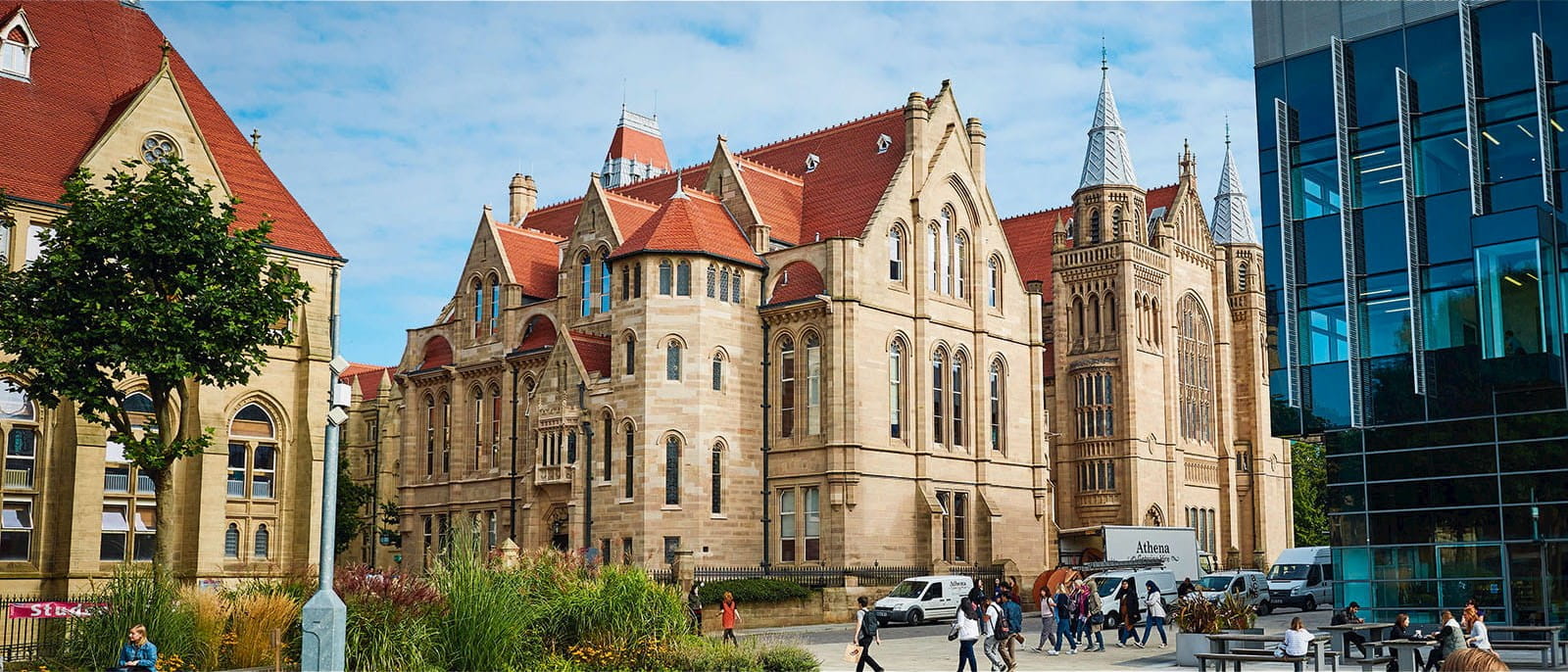Manchester has its own corporate finance and investment community – but M&A is not a closed shop, says David Prosser.
In one half of Manchester, everybody’s talking about the same deal right now. But the saga over the Glazer family’s sale of Manchester United is about as atypical a transaction as it is possible to imagine for the city’s flourishing corporate finance sector, which is far more accustomed to transparent deal processes and efficiently completed investments. The city may be the setting for Coronation Street, but dealmakers are not fans of long-running soap operas.
“The PE ecosystem here is the second largest in Europe,” points out Richard Stark, a Manchester-based corporate finance director at KPMG, who also heads up its private equity team in the north of England. “It’s a very active deals scene and a whole infrastructure has developed to support that.”
Data backs up this view. The North West accounted for 11% of all UK PE mid-market investment last year, according to KPMG research, making it the most active market outside of London. The region recorded 76 transactions in 2022 worth £4.8bn over the year; although this was down on the boom year of 2021, it was ahead of the pre-pandemic highs.
The biggest deals of 2022 in the region included Triton’s £400m acquisition of O’Connor Utilities and Sun Capital Partners’ £271.5m purchase of K3 Capital Group. Technology, media and telecoms (TMT) and business services were the dominant sectors for mid-market PE transactions, according to KPMG.
Manchester has also seen its share of corporate M&A activity over the past 12 months: supermarket group Asda paid £605m for the Co-operative’s fuel business; real estate business Greystar paid £390m for a portfolio of assets including student accommodation in Manchester; and Salford-based Hoist Finance was acquired by Leeds’ Lowell Group for £370m.
Tech news
New technology start-ups in the city are also thriving. Companies House data reveals that Manchester saw a 29% increase in incorporations last year, compared with 22% across the UK as a whole. Manchester-based tech start-ups alone raised £532m of new funding in 2022 according to research from Dealroom – 50% more than in 2021 and more than any part of the country, other than London and the South East.
Notable raises included the electric vehicle infrastructure specialist Be.EV’s £110m investment from Octopus Energy, broadband provider Freedom Fibre’s £84m investment from infrastructure investor Equitix, and the grocery delivery firm Modern Milkman’s £50m Series C round.
The nature of these businesses points to Manchester’s strengths. “The area has become the top technology hub outside of London,” says James Wild, a Manchester-based corporate finance partner and head of M&A at RSM. The number of local businesses in the pure-play TMT sector, or that are technology-enabled, has accelerated rapidly in recent years, he says, with other intellectual property-heavy industries such as healthcare also growing rapidly.
Rich history
The city rightly remains proud of its heritage and, says Wild, “There is still a significant amount of old money tied up in family-run companies in industries such as manufacturing and infrastructure services.” The sale of Lancashire-based industrials group Protec last year to the German giant Bosch is one example of how this feeds through into transactions.
“The North West is certainly more than just a tech story,” agrees James Fieldhouse, M&A managing director at BDO in Manchester. “It’s a real mix: there’s a healthy amount of manufacturing still in the region, as well as strength in areas such as professional services and recruitment.”
What drives Manchester’s success? Geography is one part of the equation. It’s a large city, far enough from London that people feel they need local financial services. By contrast, Birmingham, the country’s second largest city, is much more easily serviced by London-based investors and advisers. Still, there’s more to it than that. Liverpool, Bristol, Sheffield and Leeds all boast similar-sized populations to Manchester, but don’t come close to matching its status as a hub for investment.

One factor is access to talent. Manchester’s universities produce 36,000 graduates each year, 60% of whom stay in the North West after graduation, according to Invest in Manchester. The city has also become a magnet for older workers attracted to affordable house prices, decent schools and an attractive quality of life. More people relocating from London choose Manchester than any other UK area.
The effect has been to create a virtuous circle, says Harry Jones, a Manchester-based investor at Business Growth Fund (BGF). “The high-quality infrastructure here – the universities, education, housing and transport – is a really strong pull for companies,” he says, pointing to the fund’s recent investment in Leigh-based technology group Key Computer Applications as a good example. “Twenty years ago, would a business like that have been able to recruit the people it needs anywhere other than London? Probably not.”
Renewal is another part of the story. The IRA bomb that ripped the heart out of Manchester in 1996 prompted a decade-long programme of city-centre regeneration. This had followed regeneration of other parts of the city including the former docks, which paid off with high-profile moves such as the BBC’s relocation to the MediaCity development in Salford Quays in 2011.
Investors have arrived in droves – particularly in high-growth and innovative sectors – at every stage of the growth cycle. “Businesses are securing early-stage capital and then progressing to secondary deals, often with investors within the region,” says KPMG’s Stark.

Private capital
In the growth capital space, the most active investor in the region last year was the Northern Powerhouse Investment Fund with 11 deals, according to data from Experian. The £500m fund, a collaboration between the British Business Bank and 10 local enterprise partnerships, was launched in 2017 and provides both debt and equity finance. Experian also highlights BGF and Praetura Ventures, which both completed eight deals in the North West in 2022. The latter set up shop in Manchester just over 10 years ago in order to focus on the region.
Other prominent venture capital investors have followed. Last year saw Lord Jim O’Neill, the former Goldman Sachs economist, raise £215m for Northern Gritstone, which will invest in university spin-outs across the north of England. The PE sector, meanwhile, is even more competitive. Research from RSM suggests that around 300 currently active North West businesses have raised PE finance. “When we win a mandate, there is no shortage of local names to put on the list of potential investors,” says BDO’s Fieldhouse.
Indeed, Aziz Ul-Haq, a partner at LDC, points out that most investors see the need to have boots on the ground locally. “It’s not absolutely essential, but if you’re not here, you’ll be much further down the pipe, even if you still get to see deals,” he says. “It’s a self-contained market, unlike any other region.”
This market has seen a significant number of PE firms open locally – both national and international players. The Dutch group Waterland Private Equity, for example, chose Manchester as its first UK base, opening its office in the city in 2017. London-headquartered WestBridge Capital arrived in 2019. They’ve joined firms such as ECI, Equistone and Livingbridge, which have had a presence in the city for longer.
The city also has its fair share of home-grown PE investors. LDC, although part of Lloyds Banking Group and active nationwide, has built a large part of its reputation on investments made in the North West. Palatine Private Equity was founded in Manchester in 2005 and remains headquartered there.
CASE STUDY
Tech opportunity
PE firm LDC invested £25m in Manchester-based CTI Group in February 2022, taking a minority stake to support the digital transformation business’s expansion strategy. The funding was intended to help CTI, run by CEO Nick Rhind, to broaden its portfolio of digital services and to underpin its acquisition strategy. That includes plans to expand into new international territories, and to open new offices to support a growing client base in the US, Europe and Asia.
“Nick and the team have built an impressive digital agency that is growing rapidly; our support will help the team to accelerate this,” said Richard Ibbett, investment director at LDC in Manchester, at the time of the deal. “We are already working closely with them to support a pipeline of exciting opportunities to further expand the business.” CTI made its first acquisition following LDC’s investment in July last year, acquiring the app development agency Silverchip. The deal adds to the agency’s ability to offer consultancy on mobile apps.
LDC was advised on its original investment in CTI by EY (which provided corporate finance and tax support), BDO (financial due diligence), Addleshaw Goddard (legal) and GRAPH (commercial due diligence). CTI Group was advised by BDO (corporate finance) and DLA Piper (legal).
Supportive environment
It’s not that Manchester is a closed shop, says RSM’s Wild. “In the past there was a view that we were not open to outsiders, but that’s never really been the case, as evidenced by the significant influx of UK and international equity investors into the city,” he says. “But we are collegiate – people do want to build close and trusting relationships, and there is no shortage of local players committed to doing that.”
This approach extends to the corporate finance infrastructure sitting around investors, which is extensive and deep-rooted in the region. “You can absolutely do a deal in Manchester without having to go outside the region for support,” says Ul-Haq. Indeed, while the traditional process was for advisers to employ local teams but rely on a London-based office to supply any additional sectoral expertise, they are increasingly switching to having sector-based specialism on the ground in Manchester.
Locally-based advisers include several investment banks with a presence in the city, such as Rothschild (currently advising the Glazers) and Houlihan Lokey, all the Big Four accountants, and significant numbers of national mid-market firms, including BDO, Grant Thornton, Mazars and RSM. North West-headquartered advisers and boutiques include Cowgills, MHA Moore & Smalley, and Rickitt Mitchell.
Among the legal advisers, Experian’s research identifies Hill Dickinson, Napthens and Addleshaw Goddard as having worked on the largest number of corporate transactions in the North West last year.
Will these advisers be just as busy in 2023? Investors in the region say they detect some caution amid an uncertain outlook nationally and globally, both in economic and political terms, but remain optimistic.
“There was definitely some softening in the first quarter in terms of deal volumes, with people just holding back from firing the gun on deal processes,” says Ul-Haq. “But there are lots of conversations going on, and the perception is that activity will pick up in the second half of the year.”
On valuations, the best businesses still have plenty of reasons to be confident, adds BGF’s Harry Jones. “We’re seeing something of a polarisation,” he explains. “Investors have capital to deploy, so high-quality businesses in the in-demand sectors are seeing plenty of interest at strong multiples.
“Elsewhere, however,” he warns, “lower-quality assets that would previously have got away at the top of the market may not do so now, because risk appetites in certain sectors have certainly diminished.”
At BDO, Fieldhouse concludes: “There is a bit of nervousness with founders and would-be vendors just taking some time currently to decide whether now is the right moment to commit to a transaction; the flip side is that those coming to market are getting more attention and pricing has remained strong.”

From PE to trade sale
Facilities management company NSS provides a good example of a natural path of evolution for successful businesses in the North West.
The Manchester-based firm, which was formed in a merger between High Access Maintenance and Nationwide Window Cleaning, took its first external investment in 2016, with Business Growth Fund (BGF) initially putting £3.3m into the business to support a roll-out strategy. BGF subsequently supported the business with a further £3.2m.
Following BGF’s initial stake, the company grew rapidly – through both organic expansion and four acquisitions – and was acquired last year by Premier Technical Services Group, a West Yorkshire-based trade buyer, for an undisclosed sum. Advisers on the deal included KPMG, Shoosmiths, Gateley and EY.
The combined business employs 2,400 people across 47 sites, making it one of the largest facilities management businesses in the UK. It specialises in external building maintenance and has clients in the retail, commercial property, events, healthcare and distribution sectors.
“BGF’s funding allowed us to accelerate our plans to expand rapidly over the past five years,” says Niel Bethell, who was CEO at NSS over that period. He points to a five-fold increase in EBITDA during the fund’s involvement. “In that time, we really grew up as a business – investing in our people, equipment and technology.”

